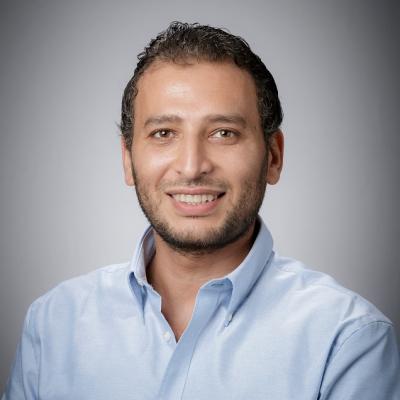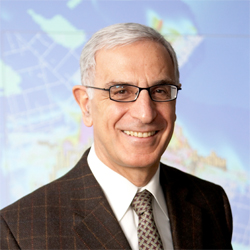MITL Overview
Through research, education and outreach, the McMaster Institute for Transportation and Logistics (MITL) builds alliances with both private and public stakeholder organizations to advance evidence-based solutions for the more sustainable movement of goods and people. MITL was formed in 2007 with the vision to become a world-class institute at McMaster University for multi-disciplinary applied research in transportation and logistics.
Mission Statement
MITL conducts world-class, multidisciplinary, cross-sectoral, collaborative research in transportation and logistics to:
- Accelerate the identification, mobilization and adoption of knowledge and innovation;
- Identify and address pressing regional and national challenges in transportation and logistics including those of vulnerable populations;
- Educate the next generation of thought leaders in transportation and logistics;
- Foster long-term strategic partnerships between the academic, public and private sectors, and;
- Contribute to the international transportation and logistics research agenda.


MITL’s OVERALL value propositions
- MITL brings together academic researchers, students, and public and private organizations to pose the right research questions and work towards their answers to help improve the mobility of goods and people
- MITL generates objective, evidence-based results for the benefit of its partners, stakeholders and society
- MITL pools and leverages funding to maximize return-on-investment for its partners
- MITL provides researchers with a convenient, friendly and stimulating venue to collaborate and solve real-world research problems
- MITL develops the next generation of thought leaders
- MITL stimulates dialogue to draw attention where it is needed
Research Areas
Related MITL Projects
- Metropolitan Traffic Congestion in Canada: Measures, Causes, Implications and Policies
- Estimating Urban Commercial Vehicle Movements in the GTHA
- An Exploration of the Freight Village Concept
- Maximizing the Potential of the Foreign Trade Zone Concept in Canada
- Movements of Dangerous Goods Across the Credit Valley Conservation Watershed
- Champlain Bridge – Montreal: Impacts of Disruptions to Bridge Capacity
Related MITL Projects
- Truck Freight Generators and Attractors in the Province of Ontario
- Hamilton Truck Route Study
- Delivery Route Optimization: an LCBO Case Study
- An Assessment of Hands-Free Mooring
Related MITL Projects
- Metropolitan Traffic Congestion in Canada: Measures, Causes, Implications and Policies
- Computer Modelling of Traffic and Emission Impacts of a Large, Mixed Use Development: The Case of the Prospective Burlington Innovation District
- Estimating Vehicular Emissions for the Toronto and Hamilton Census Metropolitan Areas
- Movements of Dangerous Goods Across the Credit Valley Conservation Watershed
- Estimating Road Link-Based Emissions for Key Canadian Census Metropolitan Areas
- An Evaluation of the MTO Green Commercial Vehicle Program
- Children’s Exposure to Criteria Air Pollution Due to Drop-off Programs at School
Related MITL Projects
- National Consumer Stated Preference Survey
- Stated Preference Survey for Fleets
- Public Transit Stakeholder Interviews
- Discrete Choice Analysis of Stated Preference Data
- Geodemographic Analysis of Electric Vehicle Adopters
- Economic Impact Analysis of EV Adoption
- Metropolitan Estimation of Environmental / Social Impacts
- Optimization Analysis for the Locations of Public Charging Infrastructure
- Integration of Models
Themes of Interest
- Provincial consumer “mobility technology adoption”
- Autonomous Vehicles
- Connected Mobility
- Public and Micro Transit
- Analysis of use and effect of advanced vehicle technologies
- Economic impact on manufacturing opportunities in Ontario, operational efficiencies (avoided costs), infrastructural requirements and changes in labour demands and skills
- Impacts of environment and health due to traffic-related emissions due to emerging new mobility technologies
Related MITL Projects
- Benchmarking, Planning, and Promoting Transit-Oriented Intensification in Rapid Transit Station Areas
- Hamilton’s Rapid Transit Future: The Role of LRT
- Shaping Hamilton with Complete Streets
- The Safety Impacts of Red Light Cameras in the City of Hamilton
- A Transportation Demand Management Plan for McMaster University
- Transportation Concepts and Implications for the Prospective Burlington Innovation District
Data and analytics are at the heart of Fluid Intelligence (MITL’s partnership with HOPA Ports) and also have been fundamental to a wide range of MITL’s research and projects.
Partnerships
Collaborative solutions are required to address some of the big issues that impact the sustainable movement of goods and people. MITL works with a wide range of partners and stakeholders to identify the most important research questions. Since MITL’s inception in 2007, we are proud to say that we have worked with a wide array of organizations on many research initiatives. Partnerships have been fundamental to MITL’s past success and will be crucial for the future.
MITL welcomes and encourages the formation of new partnerships to help further develop solutions for the more sustainable movement of goods and people.
MITL’s Director

Director of McMaster Institute for Transportation & Logistics; Associate Professor; Civil Engineering
Dr. Mohamed’s research focuses on the systemic evaluation of transportation networks to achieve sustainable and resilient transportation systems. He is a strong believer of zero-emission, sustainable, resilient transit systems that support the rise of smart communities. His research focuses on the utilization of disruptive technologies in public transit networks with emphasis on electric and autonomous technologies. In particular, he investigates the operational efficiency of disruptive technologies in public transit networks with emphasis on; operational reliability, environmental assessment, and total cost of ownership. His research also investigates the systemic impacts of the transit system on utility grid and energy demand.
Dr. Mohamed graduated from the Faculty of Engineering, Assiut University Egypt in 2004. He was awarded his Master’s degree from the University of Rome, La Sapienza in 2007, and his PhD degree from the University of Ulster, United Kingdom in 2012. Dr. Mohamed was a member of the McMaster community since 2014 as a Postdoctoral Fellow at the McMaster Institute for Transportation and Logistics (MITL).
Dr. Mohamed was honoured with prestigious academic awards including the Runner-Up Smeed Prize for the best paper at the 44th Universities` Transport Study Group Conference (UTSG), Best Paper Award at the 3rd Irish Transport Research Network Conference (ITRN), and Best Paper Award by a young researcher at the 13th World Conference on Transport Research (WCTR).
Founding Director

Founding Director of the McMaster Institute for Transportation and Logistics
Dr. Kanaroglou, 1948 – 2016, was a Professor Emeritus of Geography at McMaster University. His formal education included degrees in Mathematics (B.Sc), Computer Science (M.Sc) and Geography (M.A, Ph.D). He combined several years of industrial experience with academic teaching and research. Dr. Kanaroglou held faculty positions at Wilfrid Laurier University, the University of Aegean (Greece) and McMaster University. He was the founder and director of the Centre for Spatial Analysis (CSpA) at McMaster. His research, funded by Canadian councils (NSERC, SSHRC), as well as ministries and municipalities in Canada, focused on sustainable transportation at the urban and regional level, on urban air quality and on the relationship between air quality and health. He was the principal investigator and participated in several national and international projects. He published extensively on transportation issues and was a member of the editorial board for several transportation-related journals. Dr. Kanaroglou spearheaded the establishment of the McMaster Institute for Transportation and Logistics (MITL) designed to bring together the private and public sectors with academia for the development of relevant and high-quality research in transportation and logistics.
Former Directors

MITL Director (2017-2022)
Dr. Saiedeh Razavi is the inaugural Chair in Heavy Construction, Associate Professor at the Department of Civil Engineering at McMaster University, and the Director of the McMaster Institute for Transportation and Logistics (MITL).
Dr. Razavi has a multidisciplinary background and considerable experience in collaborating and leading national and international multidisciplinary team-based projects in sensing and data acquisition, sensor technologies, data analytics, data fusion and their applications in safety, productivity, and mobility of transportation, construction, and other systems. She combines several years of industrial experience with academic teaching and research.
Her formal education includes degrees in Computer Engineering (B.Sc), Artificial Intelligence (M.Sc) and Civil Engineering (Ph.D). Her research, funded by Canadian council (NSERC), as well as the Ministry of Transportation of Ontario, focuses on connected and automated vehicles, on smart and connected work zones and on computational models for improving safety and productivity of transportation infrastructure projects. Dr. Razavi brings together the private and public sectors with academia for the development of high-quality research in smarter mobility, construction and logistics. She has received several awards including the McMasters Student Union Merit Award for Teaching, the Faculty of Engineering Team Excellent Award, and the Construction Industry Institute best poster award.

MITL Acting Director (2022)
Dr. Bruce Newbold is a Professor in the School of Earth, Environment & Society (SGES) at McMaster University in Hamilton, Ontario. He received his PhD in Geography from McMaster University in 1994, and worked at the University of Illinois Urbana-Champaign between 1994 and 2000 before returning to McMaster in 2000. Since returning to McMaster, he has held Guest Scholar positions at the Center for Comparative Immigration Studies, University of California San Diego (2004), and the Medical Research Council’s Social and Public Health Sciences Unit at the University of Glasgow (2008), a position which included a Fellowship through the Department of Urban Studies, University of Glasgow. His research interests focus on population issues as they relate to immigration, migration, health, and ageing. Recent research has focused on the role of migration in the development and transfer of human capital and income across space, commuting and sustainability questions, the income benefits associated with migration, immigrant health, and immigrant settlement processes.



